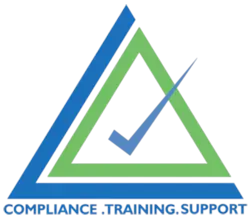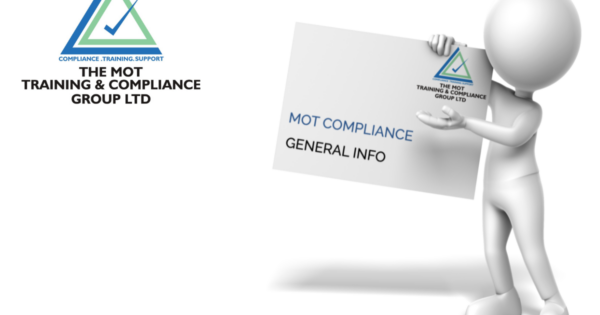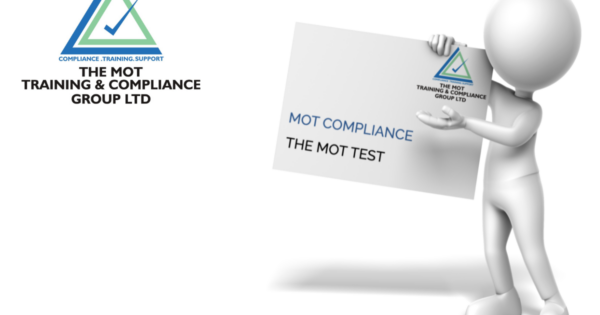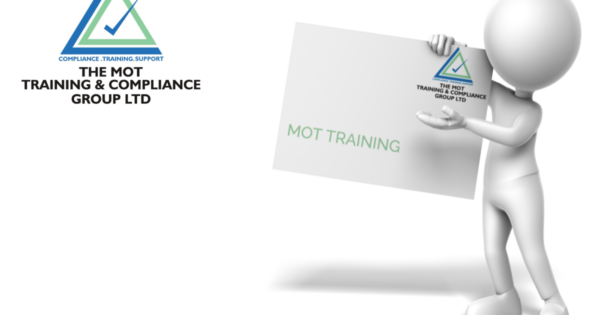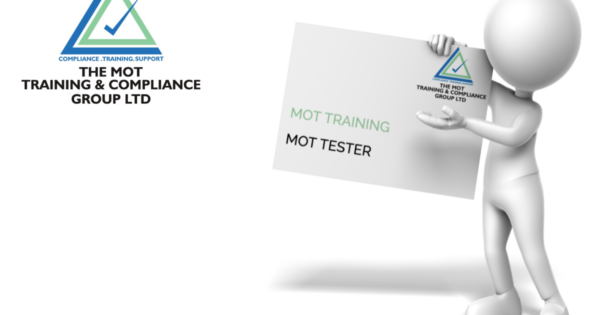MOT TRAINING AND
MOT COMPLIANCE FAQ’s
YOU ASK, WE ANSWER
Showing articles in 'MOT Tester'...(« back to knowledgebase)
Showing 30 articles.
If you want to improve communication with colleagues in a busy MOT Testing Station, the key is making small changes that don’t eat into your time but massively improve clarity. Start with better handovers: Take 30 seconds to be specific rather than vague (say “borderline wear on the nearside front brake disc, measuring 3.2mm” rather than just “it’s a bit close”). Create a culture where asking questions is seen as professional, not weak. A quick “Can you have a look at this suspension bush? I want a second opinion” prevents mistakes and builds team confidence. Make time for quick knowledge-sharing sessions, even if it’s just chatting over a brew about an interesting case or a recent manual update. Most importantly, normalise saying “I don’t know, let me check that”. The MOT manual is huge and constantly evolving, and nobody expects you to have it memorised. When everyone feels comfortable double-checking things, standards improve across the board. (Read More)
When you have to explain an MOT failure to a customer, start with empathy, acknowledge their surprise or frustration with something like “I understand this isn’t what you were expecting.” Show rather than tell whenever possible, walk them to the vehicle or show them a photo of the issue, using plain English instead of technical jargon. For example, instead of “excessive play in the track rod end,” say “this steering component has too much movement, which could affect how safely you can steer.” Explain the ‘why’ behind the test, reiterate that these checks exist for their safety and the safety of other road users. Most importantly, stay calm and patient. When customers understand you’re testing to a legal standard (not just being picky), and they can actually see the problem, they’re much more likely to accept the result without argument. (Read More)
Definitely not. MOT re-tests are often seen as a quick box-tick, but that’s not how DVSA see it. Even if it’s something “simple” like tyres or a headlamp adjustment, you need to bring the vehicle into the MOT bay, log the MOT re-test, carry out the proper checks, and then close it down on the system. A rushed MOT re-test might save you a few minutes in the moment, but if DVSA spot it, you’ll be facing an investigation that takes hours, not seconds, and could put your testing status at risk. (Read More)
Yes, you must carry out the full MOT re-test every time. You might have watched your mate swap that exhaust or change those pads, but unless he’s also an MOT tester carrying out the MOT re-test procedure, your job isn’t done. You still need to check it all under MOT rules, that means emissions test where needed, and any other checks the defect or related repairs require. The MOT tester is responsible for the MOT re-test, not the person who turned the spanners. (Read More)
Even if you were the one who fitted the new discs, tyre, or headlamp bulb, you still need to run the mot re-test as if you didn’t. That means getting the car back into the MOT bay, logging the mot re-test, doing the Roller Brake Test, headlamp aim check if needed, and then updating the MOT log. The DVSA don’t make exceptions just because you trust your own work, they expect the mot re-test to be done properly and recorded under MOT conditions. (Read More)
The DVSA Demonstration Assessment is basically the final hurdle in becoming an MOT Tester. A DVSA rep comes to your workplace to watch you carry out a test and check you know what you’re doing. It might sound daunting but if you’ve done the course and paid attention, you’ll be fine. Just remember that when they come to carry out the DVSA Demonstration Assessment, they’ll also do a Site Review. That means checking the whole garage setup including equipment, cleanliness, records etc. So make sure everything’s in order before they turn up. (Read More)
Once you’re eligible (ie. you’ve got the experience, the right qualification/VTAA, clean licence, and DBS), the course to become an MOT Tester is just 4 days. You’ll usually get your IMI certificate within 2 weeks, and once that’s in hand (and your DBS has cleared), you can book your Demonstration Assessment with DVSA. So, in real-world terms, you’re probably looking at just a few weeks from starting the course to being ready for final sign-off. (Read More)
Can I become an MOT Tester if I’ve been working in a garage for years but don’t have a formal qualification – that’s a question we get a lot! If you’ve been full-time on the tools for at least 4 years, properly servicing and repairing light vehicles (not just fitting wipers and topping up screen wash), then you’re halfway there. If you don’t have a Level 3 qualification in vehicle maintenance and repair, there’s another route: the Vehicle Technician Accredited Assessment (VTAA). It’s a hands-on way of proving you know your stuff, but don’t try and wing it as the assessors will spot a chancer a mile off. If you’re solid on your skills, this route could be for you. You can find out more info about the VTAA route to becoming an MOT Tester HERE (Read More)
As an Authorised Examiner (AE), what's my responsibility for MOT Tester Annual Training & Assessment
As an Authorised Examiner, your responsibility for MOT Tester Annual Training & Assessment is to ensure that: All your testers have recorded their training on their MTS profile. Testers have kept records of training for the last five years. They have taken and passed the annual assessment. Their assessment results are uploaded to their MTS profile. If your testers don’t comply, both they and your business could face suspension. That’s why it’s crucial to have a process in place to regularly check the status of your team’s annual training and assessments. (Read More)
Yes! Passing the MOT Tester annual assessment isn’t enough—you must upload proof of your training and your assessment results to your MOT Testing Service (MTS) profile by 31st March. If you don’t, your testing status will still be suspended. You’re also required to keep a record of all your training for the past five years. This is your responsibility as an MOT Tester. (Read More)
If you miss the 31st March deadline for the MOT Tester Annual Training and Assessment, your MOT Tester status will be suspended—meaning you won’t be able to carry out MOT tests. To regain your testing privileges, you’ll need to: Complete the MOT Annual Training for the current year (so if you miss the 31st March 2025 deadline, you’ll need to complete the 25/26 training year). Pass the annual assessment for the current year. Request and pass an MOT demonstration test conducted by the DVSA. Until all three steps are completed, you’ll remain suspended—so it’s best to get your assessment done in good time! (Read More)
The Vehicle Technician Accredited Assessment (VTAA) course combines classroom learning and hands-on workshop assessments over two days. To complete the course, you must pass: One online assessment. Four practical assessments covering brakes, suspension and steering, wheels and tyres, emissions, and electrics. These assessments are designed to validate your skills and provide proof of your competence in vehicle inspection and maintenance, paving the way for you to become an MOT tester for classes 3, 4, 5, or 7 vehicles. (Read More)
To be eligible for the Vehicle Technician Accredited Assessment (VTAA), also known as the Light Vehicle Inspection or LVI, you need to meet specific DVSA criteria, including: A minimum of 4 years’ full-time experience in servicing and repairing the relevant vehicle classes. A full and valid UK driving licence for the vehicle classes you intend to test. Passing a Basic DBS (Disclosure and Barring Service) check. Being deemed ‘of good repute’ (check out the MOT guide for more info) This course is ideal for technicians without formal qualifications, those who have misplaced their documents, or skilled workers who’ve moved to the UK and need an accredited qualification. (Read More)
The Vehicle Technician Accredited Assessment (VTAA), also known as the Light Vehicle Inspection (LVI), is a two-day course designed for experienced technicians who want to become MOT testers but lack a Level 3 qualification. It provides a recognised accreditation equivalent to Level 3, enabling you to meet the DVSA requirements for MOT tester certification. Whether you’ve lost your qualifications, never attended formal training, or have relocated to the UK, the VTAA offers a straightforward pathway to becoming certified. (Read More)
Criminal convictions, particularly unspent ones, can impact your our ability to pass the DVSA MOT Demonstration Test and, therefore, your application to become an MOT tester. As part of the booking process, you’ll need to complete a Disclosure and Barring Service (DBS) check. If your DBS certificate shows unspent convictions, the DVSA will review your case to determine your eligibility. If you believe your unspent convictions do not constitute as serious offence as detailed in the convictions and repute section of the MOT testing guide you can still apply, but you’ll need to send a copy of your DBS certificate and a covering letter explaining your circumstances to the DVSA. They will assess your application and may request additional information before deciding whether you can proceed with the DVSA MOT demonstration test. Transparency and timely submission of documents are essential in these cases. (Read More)
Before booking your DVSA MOT demonstration test, you’ll need to ensure you have: A Level 2 Award in MOT Testing for the relevant vehicle class. A valid UK driving licence for the vehicle types you’ll be testing. At least four years of professional experience in vehicle servicing and repairs. An active MOT Testing Service account with your qualification details updated. A Disclosure and Barring Service (DBS) consent code or certificate. Having all these ready will help prevent delays in booking your test. (Read More)
The DVSA MOT Demonstration Test is a practical assessment required to become an authorised MOT tester in the UK. It ensures that you can competently inspect vehicles and meet DVSA standards. During the test, a DVSA examiner observes your ability to conduct a full MOT test, record findings, and answer related questions. The DVSA MOT Demonstration Test is a mandatory step to prove your knowledge and skills before you can perform MOT Tests. (Read More)
Yes, you can absolutely work as both a mechanic and an MOT Tester, but remember, the roles are different. As an MOT Tester, your job is to inspect and certify a vehicle’s roadworthiness – you’ll be responsible for spotting issues, not fixing them. Mechanics, on the other hand, are responsible for diagnosing and repairing any faults a vehicle may have. If you’re currently a mechanic, adding MOT Testing to your skill set could make you more versatile and valuable in your testing station. (Read More)
The training to become an MOT Tester takes place over 4 days and is a mixture of classroom and hands on practical training. There are two assessments at the end of the course, an online multiple-choice assessment and a practical demonstration. (Read More)
Yes you do have to be a qualified mechanic to become an MOT Tester. DVSA requires testers to hold a relevant Level 3 qualification. This can include an Accreditation, otherwise known as an LVI or ATA. You can find out more by visiting the MOT Guide (Read More)
The MOT annual tester training requirements for Group A (Class 1 & 2 vehicles, like motorcycles): you need to study corrosion, vehicle classification, and the motorcycle inspection manual. For Group B (Class 3, 4, 5 & 7 vehicles, like cars and vans), you’ll need to cover similar topics but with a focus on cars and passenger vehicles. If you test both groups, you need 6 hours of training annually and must complete two assessments. (Read More)
You must record your MOT annual tester training on the official MOT Testing Service. This involves logging into your MOT profile and entering details such as the training date, duration, and topics covered. Managers should also view their testers’ logs to ensure they are up-to-date, as the DVSA can access and review these records. (Read More)
If you don’t complete your MOT annual tester training by the 31st of March, you risk facing penalties from the DVSA. Your site could be flagged as needing improvement, and you may even be suspended from MOT testing until the training is completed and recorded. It’s essential to finish it early to avoid last-minute stress and potential issues with compliance. (Read More)
You need to make a manual record that shows the emissions limits were tested and met but the DSM couldn’t register the reading. Be sure to include the following information in the record and keep it for 3 months: test station number tester’s name date and time test number vehicle type vehicle registration number that the vehicle passed the emissions test (Read More)
Yes – if you have a criminal conviction you can still become an MOT Tester but it will depend on the offence involved and the punishment that was given. This is what the MOT Guide has to say – “The DVSA understand that certain convictions can be emotive in nature and as such DVSA will take into consideration any conviction which is defined to be a serious offence. The DVSA considers a serious offence to be defined as any unspent criminal conviction of an individual or business entity to which that individual had an association to, where any of the following has been imposed: a prison sentence (including suspended sentences) of three months or more, a fine exceeding level 4 on the standard scale (currently £2500), a community service order (or equivalent) requiring unpaid work for more than 60 hours, any punishment outside the UK corresponding to the above. If the conviction does not fall under these categories then the conviction will be considered acceptable for participation within the MOT scheme, unless there are grounds for consideration as part of an individual’s good repute.” In real terms then – A 1 or 2 month suspended or served sentence should be […] (Read More)
